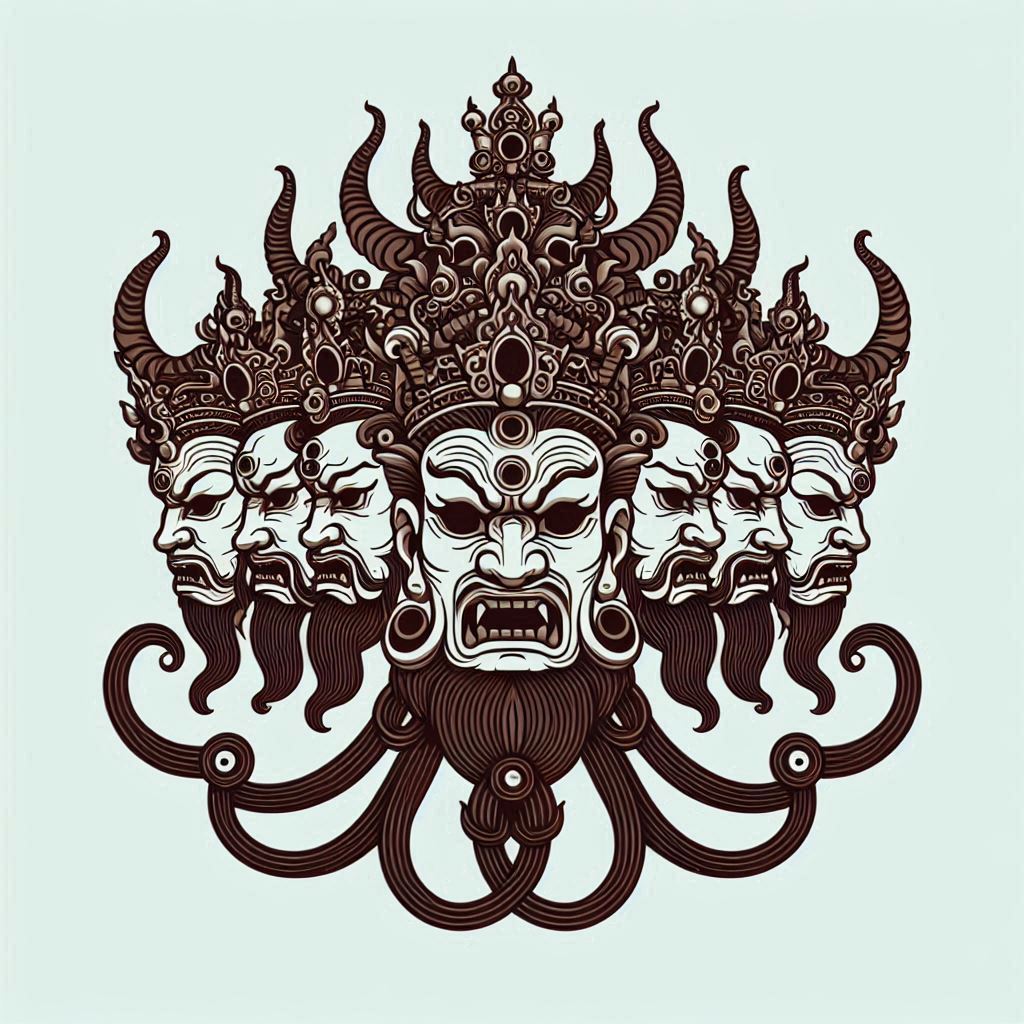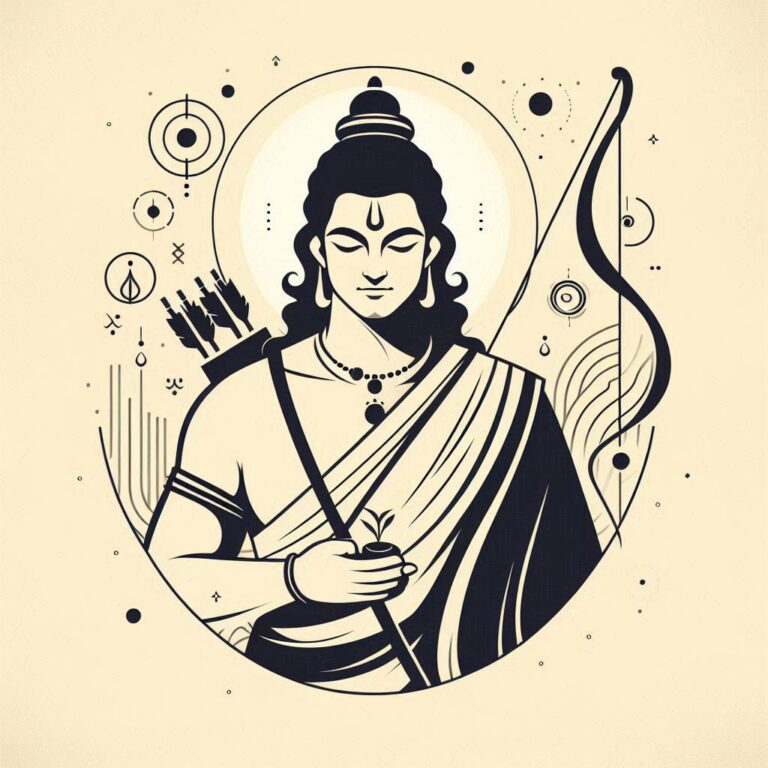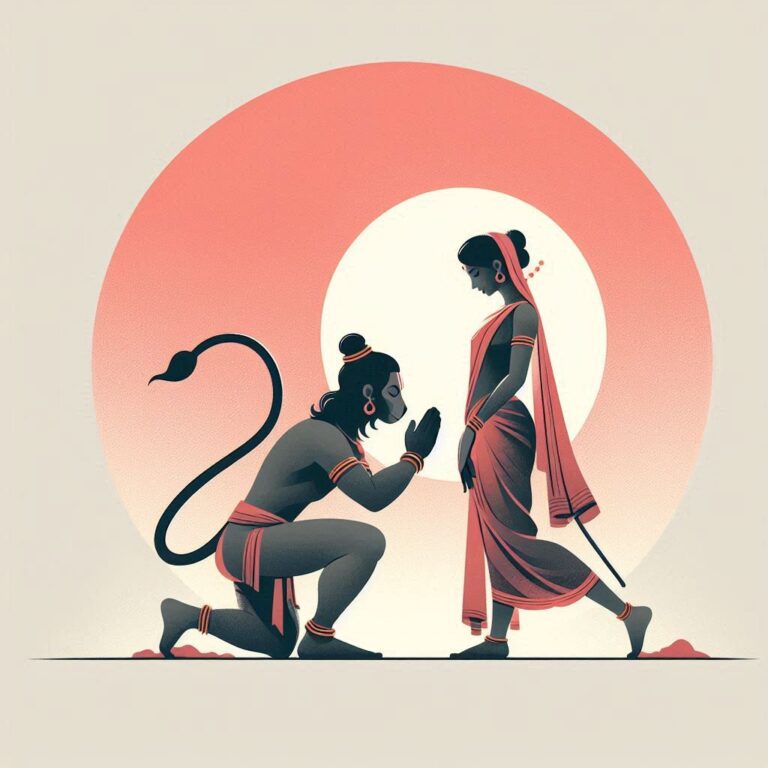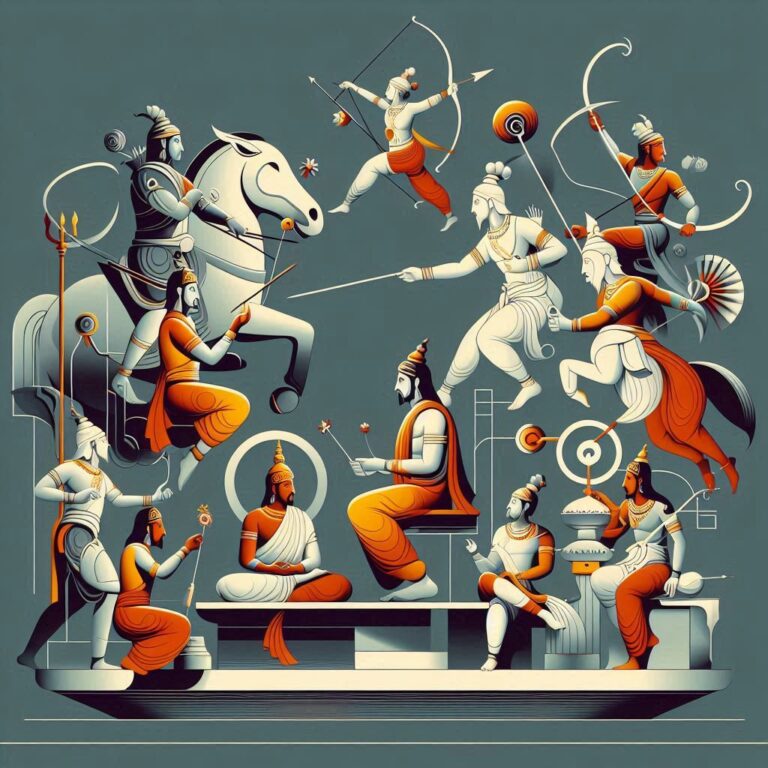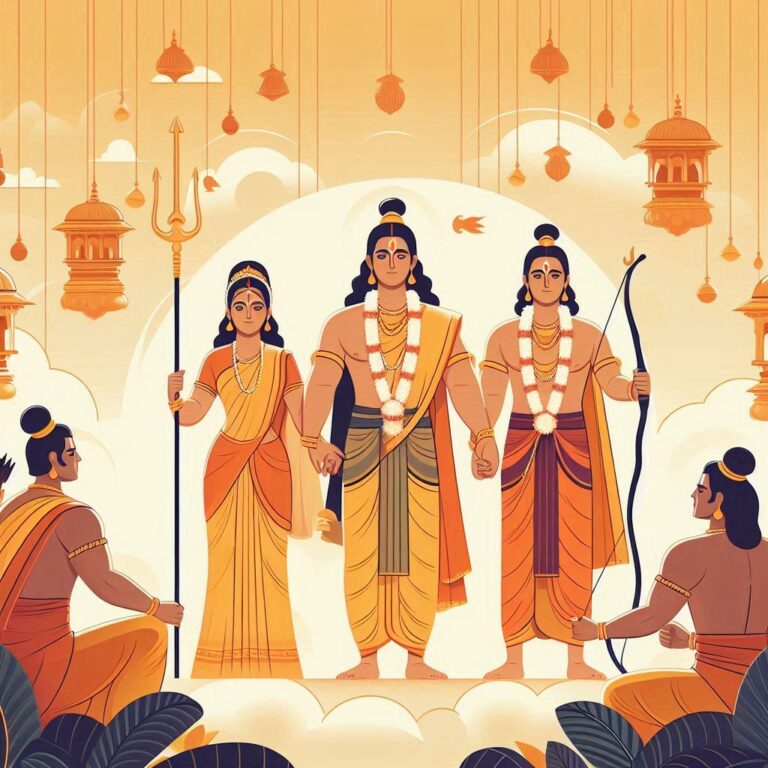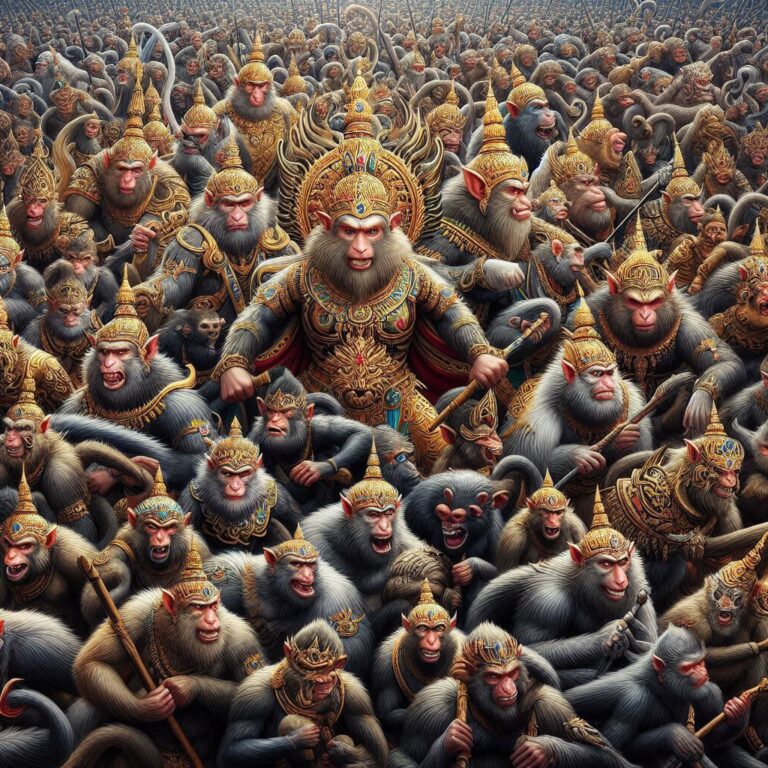Ravana’s Strategic Tactics and Defenses Unveiled in Ramayana
Unveiling Ravana’s Tactics and Defenses in the Ramayana
When you think of epic characters in ancient literature, Ravana, the ten-headed king of Lanka, often stands out. Not just for his imposing figure, but for his intelligence, strategy, and a plethora of tactics he employed during the legendary narrative of the Ramayana. Even though he’s typically portrayed as the antagonist, his skill set deserves recognition. In this article, we’re going to dive deep into Ravana’s tactics, defenses, and how he managed to command respect as a formidable ruler.
Who Was Ravana?
Ravana was more than just a villain in the epic tale of Ramayana; he was a learned scholar, a masterful warrior, and an adept strategist. His character encapsulates the duality of good and evil, showing that wisdom can be wielded for both righteous and nefarious purposes.
But before we dissect his strategies, let’s clarify one thing: why should we care about a character often cast in a negative light? Well, understanding his tactics can offer us insights into leadership, conflict management, and the importance of strategy in any competition or challenge.
Ravana’s Tactics: The Master Strategist
To understand Ravana’s brilliance, we first need to highlight the key tactics he employed during his reign. Let’s break it down:
1. The Element of Surprise
Ravana was known for his unexpected maneuvers. He didn’t just rely on brute strength; he used psychological warfare to keep his enemies off-balance. Each encounter with Lord Rama and his allies was marked by unexpected assaults, ambushes, and retreats.
Imagine playing chess, where one false move can determine your fate. Ravana was the player who always kept his opponent guessing.
2. Utilizing His Resources Wisely
Ravana was the king of a prosperous kingdom. He used the wealth and resources of Lanka not just for his comfort but to fortify his defenses and empower his army. This network of resources allowed him to create alliances, bolster his army, and gather intelligence.
Key Takeaway:
- Resource management is crucial in leadership. Whether it’s time, money, or manpower, knowing how to utilize them can provide a significant advantage.
3. Psychological Warfare
Ravana understood the importance of morale. He often used fear to his advantage, projecting strength and ruthlessness to intimidate his enemies. Additionally, he played mind games, promoting false narratives to confuse his opponents, making it hard for them to unify against him.
4. Master of Combat
A skilled warrior, Ravana was known for his expertise in various combat techniques. His knowledge of weaponry and combat strategies made him a formidable opponent. When engaged in battle, he didn’t just rely on his strength. His combat was strategic. He would analyze his opponent’s moves and adapt his strategy accordingly.
Ravana’s Defenses: Fortifying His Kingdom
An effective defense strategy is just as vital as an offensive one, and Ravana excelled in this domain too.
1. The Impressive Architecture of Lanka
Ravana’s kingdom, Lanka, wasn’t just a city; it was a marvel of architecture. The fortified walls of his palace were designed to withstand sieges. High walls, watchtowers, and strategically placed gates made it incredibly difficult for any invading force to penetrate.
Imagine:
If you were to build a fort, would you just stack bricks? Or would you consider the angles, the visibility, and potential points of entry? Ravana had the foresight to do just that.
2. Strategic Alliances
Ravana was not just a lone warrior; he forged strategic alliances with various demons and other beings. These alliances provided him with additional manpower, resources, and tactical advantages in battles against Rama’s forces.
3. Advanced Military Tactics
He was not just a ruler but a military genius. His army was disciplined and well-organized. Ravana used formations, maneuvering techniques, and even psychological tactics to confuse and defeat his enemies.
The Philosophical Insight: Genius Tainted by Hubris
Understanding Ravana’s strategies also opens a doorway to another aspect of his character: his hubris. Despite his intelligence and might, he often let arrogance cloud his judgment. His belief in his invincibility led him to underestimate Lord Rama and his allies.
Here’s a Doha that reflects on such wisdom:
Durmedha durakīrāt sukhamādhyaṁ ca vihitāḥ.
नीन मतरं वितरौ चिद्धिः परिजनता।
Nīna matarāṁ vitarau ciddaḥ parijana tā.
**Translation:** Wisdom, when obscured by ignorance, leads to downfall, reflected in one’s arrogance and choices.
Learning from Ravana
So, what can we learn from Ravana’s tactics and defenses?
- Strategic Thinking: Always think two steps ahead.
- Resource Utilization: Make the most out of what you have.
- Adaptation: Be flexible and ready to change your tactic based on circumstances.
The Final Battle: The Dilemma of Choice
In the end, Ravana’s downfall was not just due to Rama’s strength but also the choices he made along the way. He had every opportunity to choose a path of redemption, yet he clung to pride and vengeance.
This poses a question for all of us: In the face of conflict, do we seek reconciliation or do we allow pride to guide our decisions?
Conclusion
Ravana was undoubtedly a complex figure, whose tactical genius became his greatest asset—and ultimately his greatest flaw. By analyzing his strategies, we can glean valuable life lessons about leadership, humility, and the importance of considering the ripple effects of our choices.
So the next time you find yourself in a challenging situation, remember Ravana. While he had the potential for greatness, it was his hubris that overshadowed his brilliance. Perhaps we can all learn to balance our strengths with humility, to ensure we don’t let greatness turn into downfall.
FAQs
1. What is the significance of Ravana’s character in the Ramayana?
Ravana represents the complex interplay of intelligence, power, and ego, offering a cautionary tale about the moral implications of one’s choices.
2. Were Ravana’s tactics effective against Rama?
Initially, yes. Ravana’s strategies and resources posed a formidable challenge for Rama; however, his arrogance ultimately led to his downfall.
3. How did Ravana maintain such a robust defense for Lanka?
Through impressive architecture, strategic alliances, and advanced military tactics formed a multi-layered defense system that proved tough for any invader.
4. What are some of the important traits displayed by Ravana?
Traits such as intelligence, resourcefulness, and strategic acumen are characteristics that defined Ravana, despite his eventual flaws.
5. Can we learn anything positive from Ravana’s story?
Yes, understanding the importance of humility and the consequences of pride can provide valuable life lessons, even from a character often seen as negative.
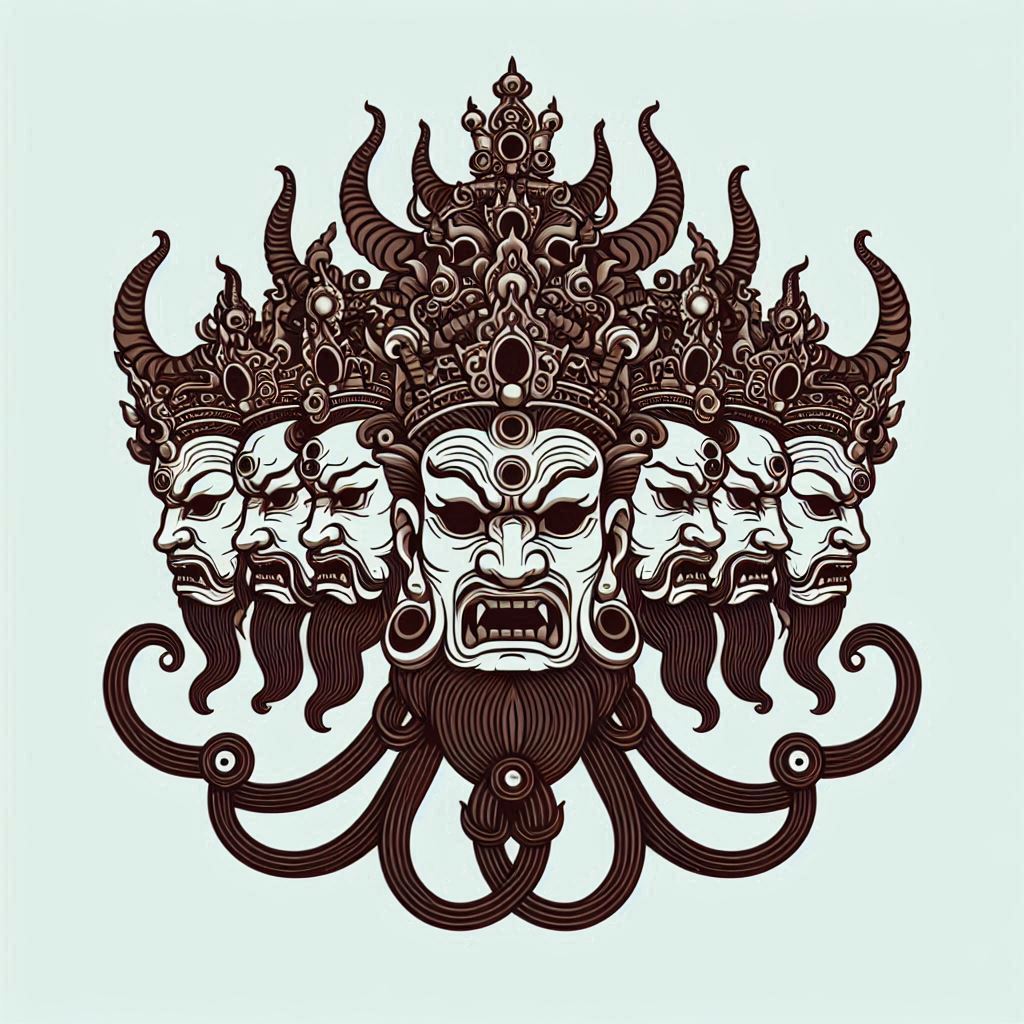
Let’s keep exploring these epic tales, for even in the shadows of villainy, there lies a wealth of wisdom waiting to be uncovered!

